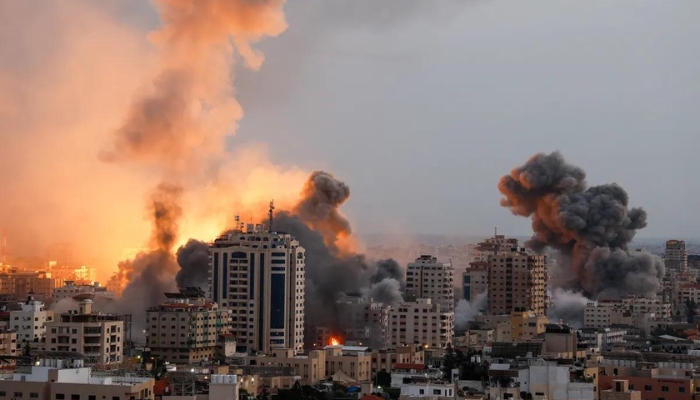Israel-Gaza Conflict’s and Deglobalization
Anúncios
The global economy is grappling with escalating uncertainty stemming from conflicts like the war between Hamas and Israel in the Middle East, coupled with the ongoing Russia-Ukraine war. These battles not only imperil the regions they unfold in but also the interconnectedness among the world’s major economies and deglobalization.
Globalization, characterized by the integration of international supply chains, advanced technology, and the free flow of trade, capital, and information, has been on the rise since the latter half of the 20th century. However, post the 2008 global financial crisis, there has been a noticeable decline in this interconnectedness.
Deglobalization, or the dismantling of economic ties, is on the horizon. This shift has been accelerated by various factors, including the tariff war between the Trump administration and China, the COVID-19 pandemic, and Russia’s invasion of Ukraine.

Wells Fargo economists believe that we are transitioning from globalization to deglobalization. They point to the increase in “harmful” trade restrictions and the sharp decline in foreign direct investment flows worldwide as evidence. Israel’s declaration of war against Hamas could be another catalyst for deglobalization.
The ongoing conflict in the Middle East has the potential to exacerbate deglobalization. Geopolitical tensions lead to reduced trade cooperation, information and technology sharing, and financial-market linkages. As countries take sides in the conflict, trade linkages between nations may sour.
Deglobalization is expected to have inflationary consequences due to reduced competition. Higher inflation rates can lead to increased interest rates, impacting global monetary policy.
While deglobalization has challenges, it also offers opportunities. By onshoring production and reducing reliance on a single nation, such as China, countries like the United States can prepare for economic shocks more effectively. It can also enhance political relations with neighboring nations, like Mexico.
In the midst of the Israel-Gaza conflict, the tech sector, a vital part of Israel’s economy, faces unique challenges. Schools have closed, streets in Tel Aviv have emptied, and many businesses remain shut. The industry, known as the “startup nation,” has shown resilience in the face of various crises, but the current situation presents an unprecedented challenge.
The ongoing geopolitical and military conflicts across the world are fundamentally reshaping global economic dynamics, potentially accelerating deglobalization and creating ripple effects on inflation, monetary policy, and regional economies. It remains to be seen how countries navigate this transition and harness the potential benefits while mitigating the drawbacks.
See also: James “Jes” Staley Banned for Misleading on Epstein Ties






